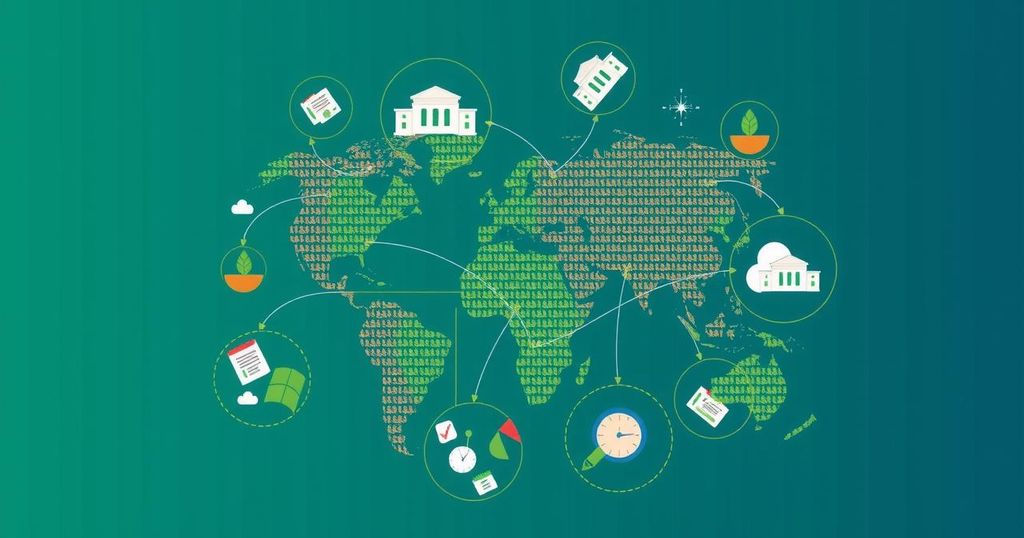At COP29, critical conversations centered on integrating education with climate finance to protect children’s learning amidst climate crises. Education Cannot Wait (ECW) is leading efforts to identify anticipatory actions, emphasizing the importance of education in combating climate impacts. Despite the need for educational systems within national climate strategies, existing funding for education remains significantly low. The discussions highlighted the vital role of education in fostering resilience against climate challenges, advocating for enhanced access to climate finance for education initiatives.
At COP29 in Baku, a significant dialogue emerged focusing on embedding education within climate finance to combat the increasing adverse impacts of climate changes on children. Education Cannot Wait (ECW), the global fund for education in emergencies, is spearheading initiatives in countries like Somalia and Afghanistan, emphasizing anticipatory actions to protect educational access amidst climate-related crises. UCW’s discussions highlighted the necessity of integrating anticipatory measures and collaboration among various stakeholders to ensure that education remains a priority amidst climate challenges. Educators and advocates stressed that proactively safeguarding education can mitigate the severe long-term impacts of climate shocks on children’s futures, including the risk of forced displacement from schools. Furthermore, the immediate effects of climate disasters, as seen in Pakistan, have significantly endangered the education of millions. The importance of implementing climate-resilient education systems, particularly in vulnerable regions, has been underscored, aiming to foster safe learning environments that withstand climate adversities. Panelist Adenike Oladosu highlighted that anticipatory actions can reduce irreversible losses and prevent children from falling out of the educational system entirely, redirecting their paths toward negative societal outcomes. Additionally, the report indicates that despite the urgency of the situation, climate finance allocated to education remains grossly inadequate, with less than 0.03 percent being dedicated to educational initiatives. Education plays a crucial role in promoting resilience against climate impacts, yet it has been alarmingly overlooked within national climate responses. The ECW advocates for improved access to climate funding trails that prioritize education, emphasizing that comprehensive solutions must include commitments to educate all children, especially those most vulnerable to crisis. The upcoming COP30 in Brazil is viewed as a critical part of this ongoing conversation, pressing for a stronger linkage between educational frameworks and climate finance to ensure that every child has the opportunity for an uninterrupted education, notwithstanding the crises faced.
The intersection of climate change and education represents a critical area of concern, particularly given the increasing frequency of climate-induced disasters that displace and disrupt learning for children. Current global crises have resulted in millions of children being pushed out of educational systems, especially in regions affected by conflict and severe weather events—factors further exacerbated by the climate crisis. At COP29, stakeholders convened to explore viable solutions and collaborative strategies to embed education within the context of climate finance, aiming to safeguard student access to learning during climatic upheaval and recognizing education as a vital tool for fostering resilience against climate challenges.
The discussions at COP29 underscore the urgent need to prioritize education within climate finance frameworks. Stakeholders emphasized that proactive measures, such as anticipatory action, are crucial to protect children’s educational opportunities from the impacts of climate change. To address the increasing disruptions faced by children worldwide due to climate-related disasters, there must be a concerted effort to expand funding and support systems that ensure all children, particularly those in vulnerable circumstances, have the right to uninterrupted education and a secure future.
Original Source: www.ipsnews.net







